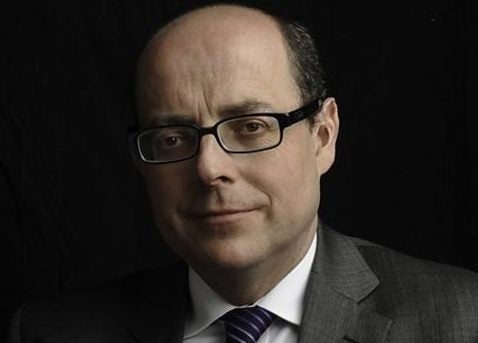
The BBC’s Nick Robinson has warned that ongoing attacks on the media are part of a “guerrilla war being fought on social media” and said the corporation should engage with those who don’t trust the news.
The Radio 4 Today programme presenter, also the corporation’s former political editor, made the remarks in a comment piece for the Guardian ahead of his speech at the first Steve Hewlett Memorial lecture tonight.
Hewlett died of cancer in February after having been given just weeks to live. A memorial fund to help student journalists from lower income backgrounds was set up in his name this summer.
Robinson claims that “if mainstream news wants to win back trust, it cannot silence dissident voices” in his piece.
He said: “Attacks on the media are no longer a lazy clapline delivered to a party conference to raise the morale of the party faithful. They are part of a guerrilla war being fought on social media, hour after hour, day after day.
“I believe the BBC should respond by adopting a mission to engage with those who do not treat news bulletins as ‘appointments to view’, those who don’t trust what they’re told; and those who crave the tools to separate what is true and what is important from the torrent of half-facts and opinion, prejudice and propaganda, which risks overwhelming us all.”
Robinson said he took inspiration from Hewlett, who had once said: “Wherever you can find the liberal consensus, probe it, probe it, probe it.”
“We should do exactly what Steve proposed,” he said, “ask questions – and share online items that ask questions – that all too often are not asked.”
Robinson said he believed declining trust in the UK news media – recorded in a recent Reuters Digital News Report – was down to “two main factors”.
“The increased polarisation of our society and the increased use – particularly by the most committed and most partisan – of social media and alternatives to what they call the MSM, the mainstream media.”
Referring to the establishment of alternative news websites such as Wings Over Scotland and The Canary, he said: “Their most shared and liked stories are attacks on the MSM and the BBC in particular.
“They share a certainty – fuelled by living in a social media bubble – that we reporters and presenters are at best craven, obeying some diktat from our bosses or the government, or at worst nakedly biased.”
He added: “In the past the purpose of the attacks was to persuade or bully the BBC or, occasionally, ITN into changing the way it reported a particular story or to drop this or that programme or journalist.
“Our critics now see their attacks as a key part of their political strategy. In order to succeed they need to convince people not to believe ‘the news’.”
The BBC was quick to confirm Kuenssberg had only been invited to speak at a fringe event, but would not be doing so. The website’s regulator, Impress, said it received 21 complaints about the article.
Picture: BBC
Email pged@pressgazette.co.uk to point out mistakes, provide story tips or send in a letter for publication on our "Letters Page" blog
